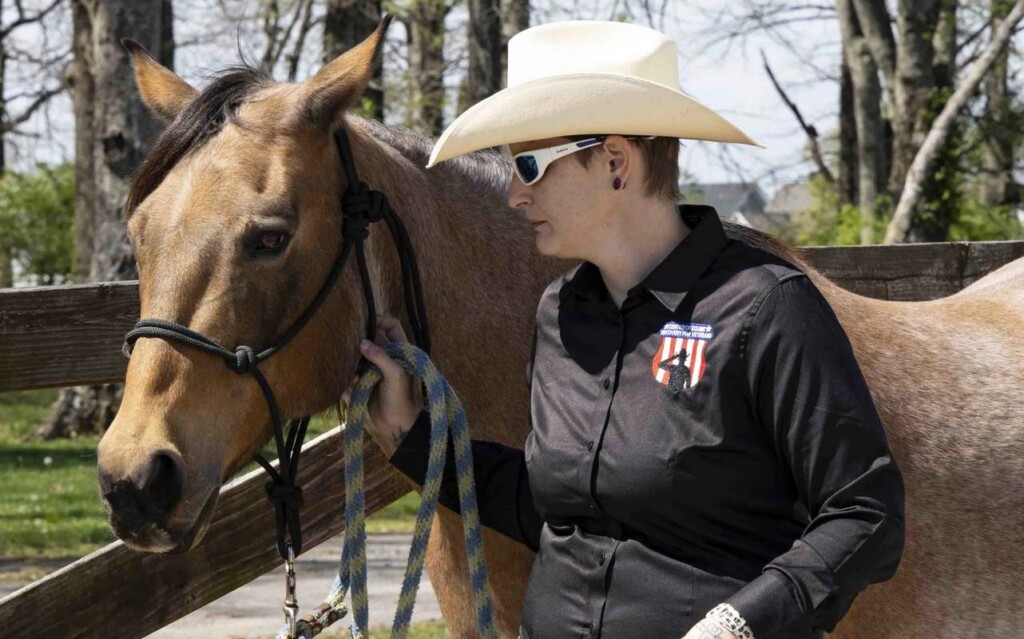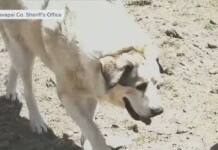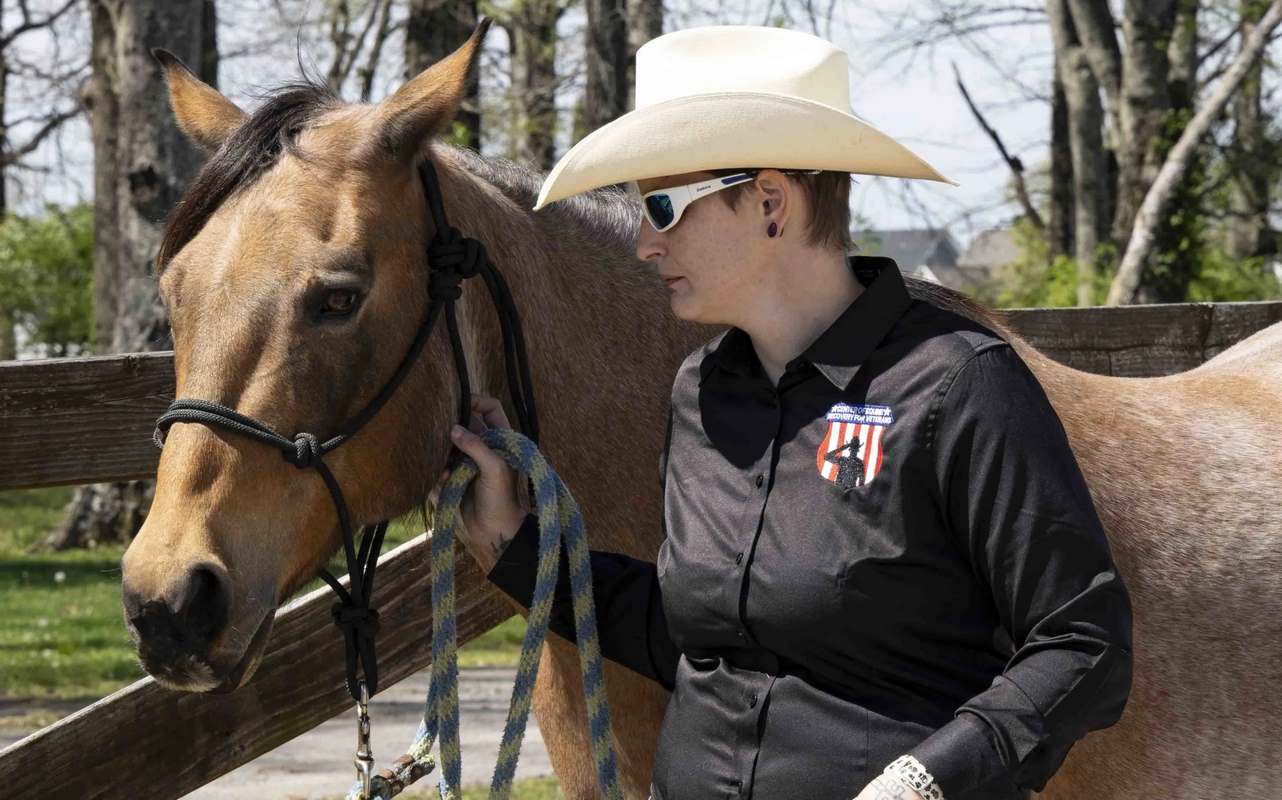
In Tennessee, the US Department of Veterans Affairs is having success with the tried and true rehabilitation method of equine therapy.
The Department recently shared some of their stories of success using the healing power of horses to confront past trauma.
Joanne Parchetta is one of many veterans helped by the Center for Equine Recovery (CERV), a program at Middle Tennessee State University. The idea behind the program was to bring veterans in from the Tennessee Valley VA and help them learn about the behaviors of horses through interactions and learning.
Veterans also learn about themselves through their development in class, in part because horses are so emotionally sensitive to their handlers that in order to be safe working with them, one more or less must be in a state of calm. One of the class organizers described them as “big bio-feedback machines that’ll tell you like it is.”
“I know that you are not defined by chronic illness or physical disability but it can demoralize you and cause you to give up. This class with horses showed me that I can still achieve and I can still dream,” Parchetta said.
According to CERV, horses mirror their guide or rider and provide a physical reflection of a veteran’s emotions. With this feedback, a veteran can better see, process, and work through their behaviors.
“The program is set up to safely assist and encourage veterans to succeed in overcoming some of the fears we might have of large animals or horses but also to build our self-confidence and learn to trust others and ourselves again,” said Lee Farris, who has been a part of CERV since 2023.
“My horse Penny showed me patience,” said Parchetta who has been a part of CERV since 2024. “She wasn’t judgmental, but expected me to do my part with confidence. The staff were the experts and took their time to ensure I was confident.”
Confidence, patience, and courage are vital skills that are tantamount to the VA’s Whole Health Service. CERV works with the recreational therapy portion of Whole Health. The class walks veterans through both classroom and hands-on demonstrations.
How to groom, care for, and get to know the horse are part of the initial few weeks of the 10-week program. veterans learn how to walk and guide their horses while dismounted and then how to lead their horses through various obstacles.
“You have to work as a team with your horse emotionally and physically for it to work,” said Parchetta. “When trusting in this amazing animal, it makes you trust in yourself and rediscover things in yourself you thought were lost.”
For Farris, the professionalism of the instructors provided a place for him to feel comfortable to grow.
“I learned how to trust the staff—not only because they were the experts—but they patiently took their time to ensure I was confident with the skills I was learning. I was able to be myself and not worry about being judged for my mistakes.”
ALL THE WAYS ORINDARY PEOPLE SUPPORT AMERICAN VETERANS:
- Paraplegic Veteran Uses Skydiving to Reclaim Lost Sensation in His Legs and Soul
- Woman Raises $233,000 to Give 90-year-old Veteran Still Working in the Heat the Option to Retire
- Military Veterans Who Lost Limbs Receive Mortgage-Free Homes to Honor Their Service
- ‘A Blessing’ For Wounded Soldiers Who Help Scientists Save Coral Reefs
- Call of Duty Game Hits Milestone of 100,000 Veterans Placed in Meaningful Jobs–And Blizzard Gives $30 Mil More
If nothing else, being out in nature wearing a cowboy hat is bound to help in some way.
CERV is the only program of its kind in the nation, but more are likely needed. Veterans of all ages, including veterans of World War II, are at substantially higher risk of suicide than the general public.
Animal therapy methods have been used for decades as part of rebab and therapy for prisoners, with GNN just featuring a story about prisoners in Las Cruces Federal Correctional Facility in New Mexico working alongside hard-to-adopt dogs to try and make these neglected and nervous animals more trusting and welcoming.
In 2023, GNN reported on “therapy sheep” being used in cases of mental health deterioration in children, adolescents, and adults. EWE Talk utilizes the animals’ dog-like behavior and wooly cuddling skills to help melt down barriers erected by overly stressed members of society.
SHARE This Important Therapy Going Well For Veterans In Tennessee…




















